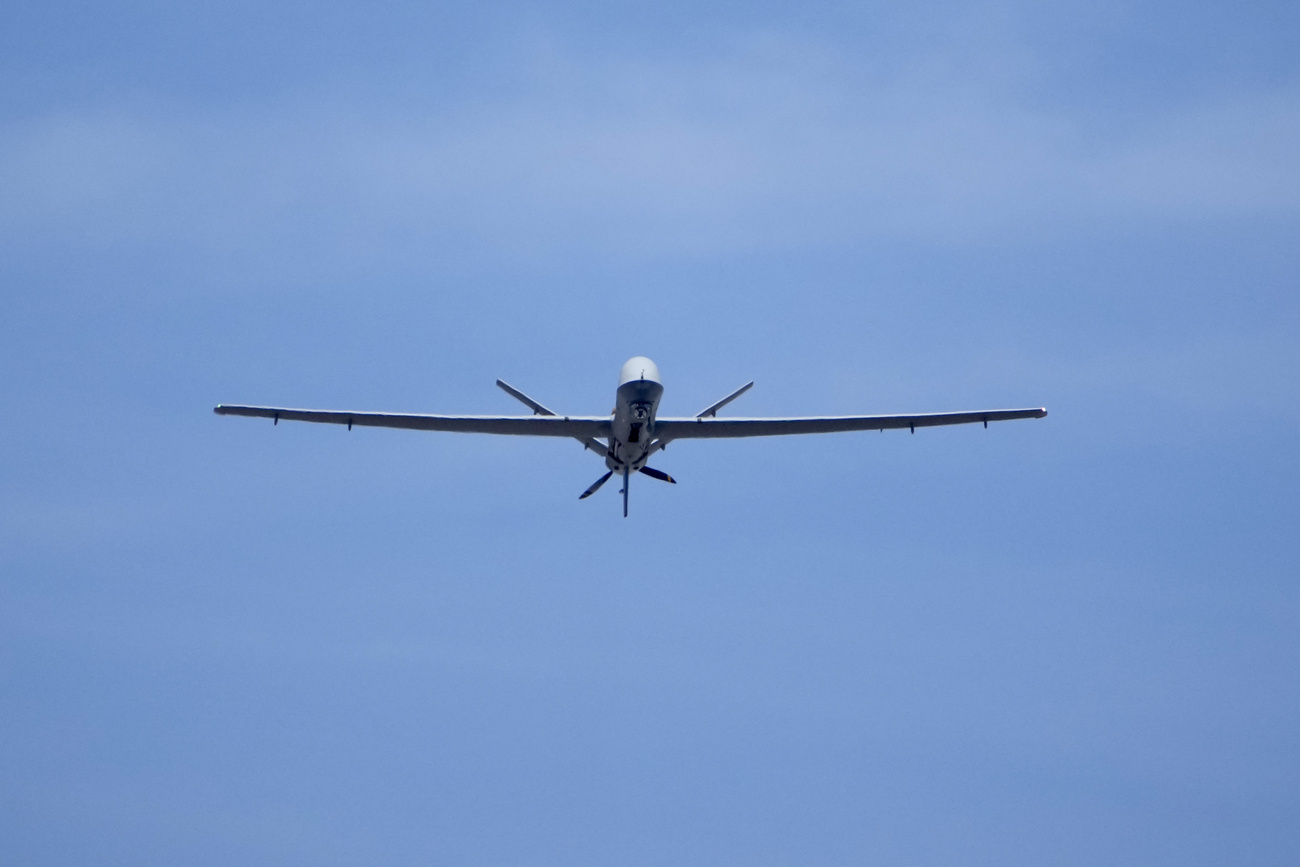
Swiss army seeks solution to killer drone challenge

Hundreds of thousands of drones are being used in the war in Ukraine, which private individuals can buy for a few hundred francs. Easy to modify, they can be transformed into deadly missiles. Faced with these weapons, which have never been used with such intensity in a war before, the Swiss army must adapt.
+ Get the most important news from Switzerland in your inbox
“I tend to use the term ‘disruption’,” says Thomas Rothacher. This is how the deputy head of armaments at the Federal Office of Armaments (Armasuisse) describes the massive deployment of drones in the war in Ukraine and the way in which they are disrupting the traditional supply system of the armed forces.
+Swiss army uses drone technology. Should we worry?
Of course, drones are not new to the military, Rothacher continues. The first tests of drone detection systems took place in 2016, but experts were surprised by the volume and impact of drone missions in Ukraine. Kyiv wants to build and deploy about a million drones every year.
+Killer robots: should algorithms decide who lives or dies?
For its part, Armasuisse recently set up a working group. Its mission is to identify ways to equip the Swiss army with a sufficient number of drones in the event of a conflict. This is a major challenge, because the short development cycles and rapid innovation of drones are diametrically opposed to the traditional, rather slow, process of acquiring weapons.
Home produced drones
“Large warehouses with drones in stock do not make sense,” says Thomas Rothacher. For him, the solution lies in the networking of flexible companies that can quickly manufacture, adapt, supplement and modify drones. Switzerland is very well positioned in this area.
In relation to the population, there are hardly any other countries that have as much expertise in drones. Countless start-ups from ETH, EPFL and universities are up and running with highly specialised drones and sophisticated control software. Some of these flying objects can be seen in the exhibition hall of the Swiss Centre for Drones and Robotics in Thun.
The deputy head of armaments is convinced that the drone ecosystem must remain in Switzerland. In the event of a conflict, it would be possible to produce its own drones flexibly or to reprogramme commercial drones to adapt them to military requirements.
Microchip problem
Nevertheless, a central problem remains: no drone flies without microchips – and none of the many Swiss companies specialising in drone manufacturing are capable of producing such chips.

More
Inside Geneva Podcast: new wars, new weapons and the Geneva Conventions
According to Thomas Rothacher, one solution would be a so-called deposit strategy: exchanging Swiss products for microchips. But this strategy does not guarantee the availability of coveted electronic circuits. That is why he is also considering stockpiling freely programmable chips with a long shelf life. Currently, the problem has not been completely solved and questions remain.
In any case, Armasuisse wants to move faster when it comes to drones. As early as next year, troops are expected to carry out tests with small drones – devices that can be purchased for just a few hundred francs and can easily be adapted to military needs.
Translated from French by DeepL/mga
This news story has been written and carefully fact-checked by an external editorial team. At SWI swissinfo.ch we select the most relevant news for an international audience and use automatic translation tools such as DeepL to translate it into English. Providing you with automatically translated news gives us the time to write more in-depth articles.
If you want to know more about how we work, have a look here, if you want to learn more about how we use technology, click here, and if you have feedback on this news story please write to english@swissinfo.ch.

In compliance with the JTI standards
More: SWI swissinfo.ch certified by the Journalism Trust Initiative



































You can find an overview of ongoing debates with our journalists here . Please join us!
If you want to start a conversation about a topic raised in this article or want to report factual errors, email us at english@swissinfo.ch.